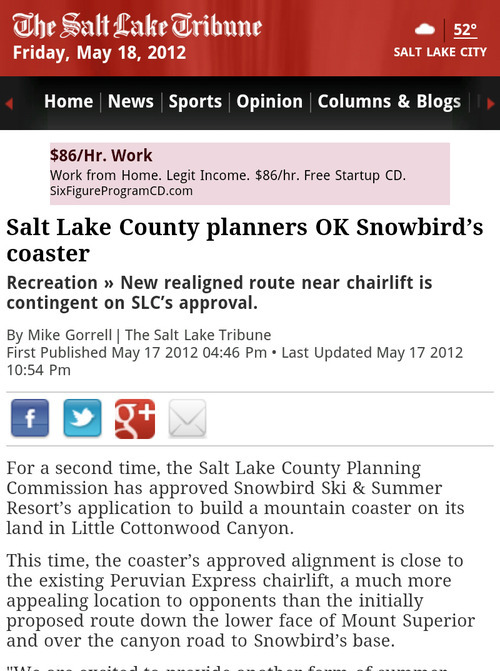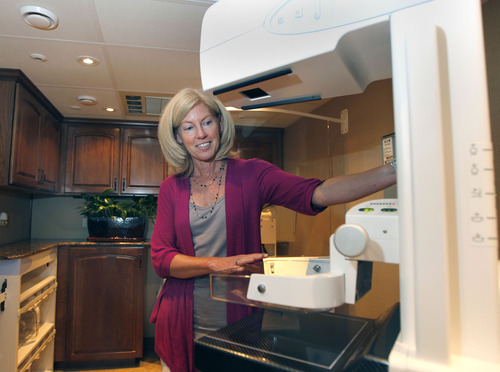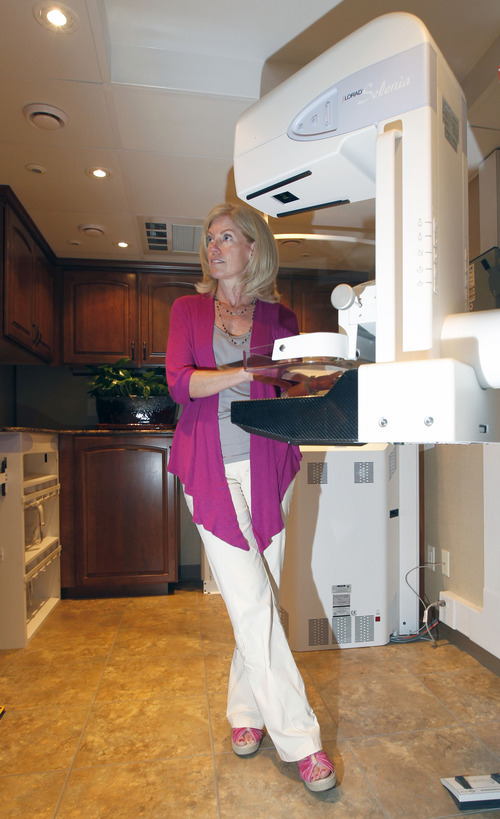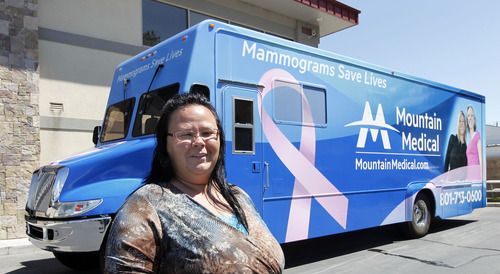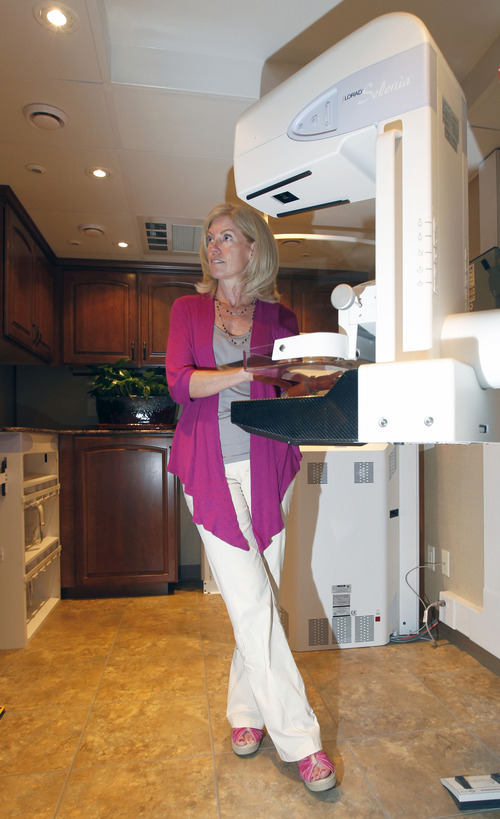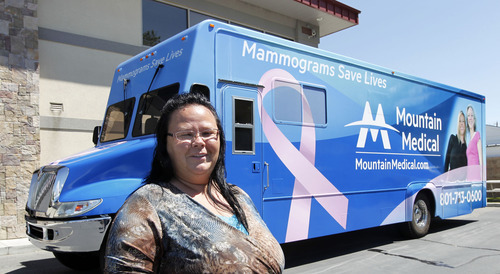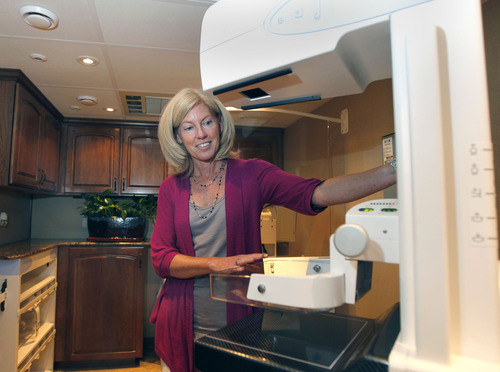This is an archived article that was published on sltrib.com in 2012, and information in the article may be outdated. It is provided only for personal research purposes and may not be reprinted.
At your next book club gathering, dish about plot twists, personal lives and…mammograms?
Mountain Medical has purchased a mobile mammogram van that it hopes to deploy to businesses, physician's offices and community events by the end of the summer.
"Have us come to your book club — whatever. It's an opportunity for women to look after themselves," said Catherine Babcook, a women's imaging radiologist at Mountain Medical, as she sat in the 38-foot screening center that feels like a mini-doctor's office. "It doesn't have to be a scary medical thing. Let's make it a social event."
Mountain Medical, created by a group of radiologists, has been promoting itself as the less expensive alternative for imaging services, including ultrasounds and CT scans. It recently purchased the mobile unit from Tuscon-based Assured Imaging, which says it provides its mobile digital mammography in 60 locations in 16 states.
The impetus, says Babcook, is Utah's dismal mammography rates.
In 2010, 67 percent of women ages 40 and older had had a mammogram within the past two years — the second-lowest rate in the nation. The national rate was 75 percent.
"To engage this population to get those numbers higher, let's bring it to the workplace," said Donna L. Milavetz, medical director and CEO of OnSite Care Clinics, which plans to use the mobile mammogram clinic at the five Utah sites where it provides primary care services.
"The only way we're going to get our hands around the rising cost of health care is really to be engaged in health. To do that you have to do things like screening," she said.
While the U.S. Preventive Services Task Force recommended in 2009 that women delay mammograms until age 50 due to the risks of false positives, some groups, including the American Cancer Society, continue to advise annual screening starting at 40.
According to the Utah Department of Health, routine mammograms can reduce breast cancer deaths by up to 30 percent in women ages 50 to 69, and by about 17 percent in women in their 40s.
It's unclear why Utah's rates are low. It's one of the few states that doesn't mandate mammography coverage by insurance companies, but that is now moot under the Affordable Care Act, which requires coverage of such preventative screens.
Babcook hopes the mobile unit will eliminate some excuses, such as lack of time or accessibility.
Mountain Medical said its price of $175 for patients who pay cash — insurance companies would be billed for insured patients — is less than what hospitals would charge. According to New Choice Health, the average price of a mammogram in Utah is $250.
According to a health department database of commercially insured residents, the average price was $166 in 2011 just for the scan; additional fees may be charged.
Groups who want to be screened need a minimum of 10 women, Babcook said.
"We can't drive along the street and yell at women, 'Hey, come on in,' but we're happy to go anywhere," she said.
A technologist will do the test, and Babcook or another radiologist will read the images the next day and provide results to the patient's physician. Mountain Medical's services are covered by most insurance plans except Cigna, according to a spokeswoman.
If an abnormality is found, an ultrasound and diagnostic mammogram would be scheduled at a facility in coordination with the patient's doctor.
Babcook also wants to clear up confusion she hears from patients who think they aren't at risk for breast cancer if they don't have a family member with the disease. All women, she noted, have a 1 in 8 chance of developing the cancer.
She said women don't need a physician's order to get the screen.
Learn more
O For more information, call 801-713-0600 or go to http://www.mountainmedical.com. —
Breast cancer screening in Utah
Among commercially insured Utahns in 2010, women living in the Avenues and around the University of Utah had the highest rates of mammograms at 56 percent. The state's lowest rates — 36 percent and lower — were largely found in rural Utah: Sevier, Piute, Wayne, Grand, Daggett, Duchesne, Uintah, Grand, San Juan, Juab, Millard, Sanpete and Tooele counties. Other low-rate locations include the west side of Salt Lake City, Clearfield and Hill Air Force Base areas, southern parts of Utah County and Magna.
Source • "A snapshot of clinical performance by Utah small area," Utah Department of Health.


